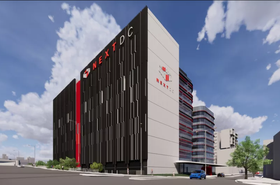As both the physical and digital worlds become more expensive and unpredictable, businesses are seeking ways to ensure their networks and operations are always online and accessible.
With the rise of remote and hybrid work models and the shift towards digital operations, IT leaders are looking for solutions that can relieve them of the burden of on-premises upkeep - primarily colocation.
Colocation is an essential service that enables companies to rent space, power, cooling, and connectivity for their servers and hardware devices, typically within a data center.
By leveraging professional data facilities, companies can enjoy the benefits of a secure and reliable infrastructure without the need to invest in building and maintaining their own on-premises physical space.
The benefits of colocation
Colocation has several advantages for organizations looking to bring their servers and hardware into a data center.
First, it reduces the physical IT footprint and operational toll of running an on-premises data center.
By colocating servers and hardware with a third-party service provider, companies eliminate the hassle of on-premises maintenance and management, as colocation providers supply the power, cooling, and connectivity capabilities required to keep servers running smoothly. Data centers offer on-site support, high-speed performance bandwidth, and a reliable, redundant energy source to keep mission-critical workloads always running, thereby ridding companies of major logistics problems.
Second, colocation can provide businesses with flexibility when building or managing their infrastructure, even when it comes to cloud integration.
As providers have evolved over the past several years to be able to support hybrid infrastructures, companies can now reap the benefits of both the high-performance compute of colocation and the agility of the cloud. In a world increasingly reliant on AI, the cloud may not always be capable of generating the high performance needed for AI applications that rely on low latency response times and compute-dense resources. Combining cloud and colocation under one provider allows companies to easily create a flexible infrastructure to meet their diverse needs.
Lastly, colocation with a data center provider means bolstered security. These centers must comply with industry standards and regulations that require a certain level of physical and network security as well as redundancy for their tenants’ IT infrastructure. Providers offer 24/7 surveillance, access control, climate and fire detection and suppression, and backup generators in case of threats or emergencies.
Colocation considerations
Beyond the advantages of colocation services, businesses must also be mindful of providers and their specific offerings.
For example, power is a key factor when choosing a provider. Relying on a single power source for equipment can increase the risk of an outage. To eliminate the possibility of downtime, businesses should seek out modern data centers that offer redundant power resources with the backing of UPS and generators to keep their workloads up and active.
Accessibility is another important consideration when selecting a provider. If a business wants access to the facility, travel time and convenience could be a big consideration.
On the other hand, and depending on the provider, businesses can choose to lean into the provider’s resources fully, avoiding the time and expense required to have their own technicians on site. Many providers offer “remote hands” services that eliminate the need for access to the center, allowing IT teams to focus on other priorities.
Finally, it’s essential to ensure the facility and equipment are compatible and flexible with your company’s unique needs.
A good provider should offer flexibility to accommodate your existing and future infrastructure needs, such as the size and configuration of racks or cages, power, and cooling requirements. Carrier-neutral providers can also allow companies to use their own network carriers.
When choosing colocation services, businesses should make sure that the provider meets their network protocols and standards and can integrate with their organization's services and solutions.
Moving forward
The modern data center was born from the growing need for secure, off-site data storage and compute. In today's world, IT infrastructure needs to adapt so frequently that it's crucial to find services that are fast, flexible, and scalable.
Colocation is an excellent solution as it offers the benefits of on-premises, traditional IT infrastructure without the overhead and operational demands of running a proprietary data center.
Colocating physical infrastructure ensures business continuity by providing security, stability, and reliability for necessary workloads. Every organization has distinct requirements and configurations and therefore requires specific solutions tailored to its unique needs.





